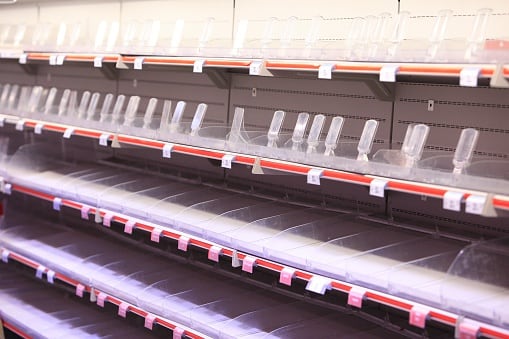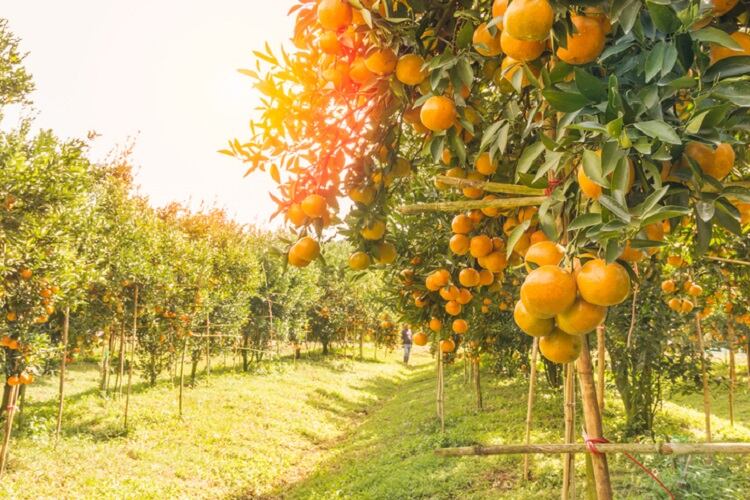Food fraud, whereby food is misrepresented or tainted for economic gain, presents a risk to intellectual property (IP) protection and human health across the globe.
While more prevalent in low- and middle-income countries, Europe is also a major target, according to food safety experts last week at the Global Food Safety Initiative (GFSI) Conference in France.
“The lower the degree of regulations in place and the lower the degree of infrastructure, in terms of how [authorities] mitigate against fraud, the more likely it will happen,” Chris Elliot, professor of food safety at Queen’s University in Belfast, told FoodNavigator at the event.
As a result, it is “unbelievably prevalent” in Sub-Saharan Africa, he said. “You could walk into a shop [there] and probably one-third of everything you buy is tainted in some way, and that is accepted by people there.”
However, Europe remains the world’s largest food market, and an attractive option for criminal activity. “Everybody wants to sell products into Europe because you get more money from it,” said Elliot.
Imports aside, criminal activity within European borders is rife, he continued, with free movement between the 27 Member States facilitating check-free border-crossings. Indeed, ‘Horsegate’ – the 2013 scandal that identified horsemeat in prepared frozen and meat products that were said to contain beef – is just one example of intra-European fraud.
“That wasn’t meat from the developing world or anywhere else. That was all done within the boundaries of Europe, and what made it easy to do was the open boundaries between countries,” he continued.
Beyond food safety: The psychological perspective
The impact of fraud can be diverse and far-reaching, well beyond the economic disadvantages of fraudulent activity.
When we as consumers purchase counterfeit or tainted food products, “we’re buying something and it’s not worth what we’re paying for,” Elliot told us in an interview. “That is easy to rationalise.”
Food safety and compromised health also present major risks. “If somebody is using dangerous material to adulterate food, then people may get sick and people might die. This happens in different parts of the world on a fairly regular basis,” he continued.
However, aside from these more obvious risks, the psychological aspects of food fraud can be just as damaging. Consumers can potentially purchase food they believe is kosher, or halal. “If it’s actually not, that is quite a shock to people,” said Elliot.
Beyond traditional, religious beliefs, consumers can also be misled when buying food pertaining to be ‘organic’ or ‘vegan’. “[Consumers] can be cheated on all these things. It goes beyond just an economic loss that you’re suffering,” we were told.
Surveillance in Europe ‘still pretty low’
According to food safety experts at the GFSI Conference, food fraud is on the rise in Europe – yet neither authorities nor industry are doing enough to curb its growth.
For Elliot, this is inherently linked to food fraud’s ‘subset’ status within the broader umbrella of ‘food security’, a subject taken extremely seriously within Europe.
“The amount of checking and surveillance for fraud in Europe is still pretty low, because we still have a ‘food safety-based culture’ – which is a fantastically [safe] supply system,” we were told.
Food fraud itself, which doesn’t necessarily harm consumer health, is less of a priority: “Checking for cheating doesn’t happen as much as it should,” he continued.
While according to European law, food security falls under the responsibility of food business operators, the responsibility for the security of all European citizens remains the government’s, said Elliot. This undoubtedly causes confusion between private and public organisations.
What is clear, it that the consumer is not expected to know if something is genuine or fraudulent. “That has to be the responsibility of business operators, but also of the government as well. They have to put good measures in place to try to deter [food fraud] and if you can’t deter, then detect.
“If you detect, then you have to penalise, and penalise appropriately,” said Elliot.
A lack of financial incentive for curbing food crime may also be contributing to rising fraud rates, he suggested. “In other words, [governments] are not losing any tax revenue with that particular type of cheating. Whereas if there are other kinds of fraud going on and they are losing tax revenue, they take it much more seriously.”
“Why, in a very developed set of nations, can we not put in measures that stop people cheating?” – Chris Elliot, professor of food safety and founder of the Institute for Global Food Security, Queen’s University
At the GFSI Conference, Sebastian Blazkiewicz, CEO of SASMA – a Polish consulting and training company specialising in business security – associated the elevated food crime rate with weak legislation across the bloc.
“What is the crime motivation?” he asked delegates in Nice last week. “Criminals have realised that they can earn more money risking less than, for example, producing drugs. Hence, the number of cases related to food crime observed a few years ago has rapidly increased.”
Law enforcement, or lack thereof, plays a major role, he continued. “This is sad, but true. I had conversations with colleagues from law enforcement [around Europe] and this is not on the same level…as drugs and money laundering.
“Of course they are investigated, but we have to keep in mind that at this moment, this is not the priority for law enforcement,” he said, adding that he does not expect the situation will “much change” in the near future.
So, how does change come about?
“Quite often it takes some kind of scandal or exposé before anybody takes any action,” Elliot told this publication, again referencing the horsemeat scandal of 2013.
Indeed, this particular, widely publicised scandal has played a major role in improving transparency across certain supply chains.

UK retailer and manufacturer Marks and Spencer (M&S), for example, which was not implicated in ‘Horsegate’, said the scandal was a driving factor in enhancing traceability across its business.
“While [Horsegate was] not a food safety issue as such, clearly…there was a lack of traceability in the food supply chain. There was lots of concern not only around the fact that the species in some beef products wasn’t as described, but there was a lack of clarity around where the product had come from,” said M&S head of agriculture and fisheries sourcing, Steve McLean, at the GFSI conference last week.
“Even though we weren’t implicated, [Horsegate] made us look very differently about the supply chains we had in place,” he told delegates.
The scandal has contributed to a downward trend in consumers’ trust of European food supply systems, said Queen’s University’s Elliot. “We’ve lost sight of where our food is produced, how our food is produced,” he said, adding that increased ‘transparency’ is the way industry must move forward.
“The more transparent [a supply chain] is, the more difficult it is to cheat.”





